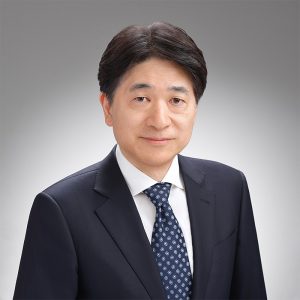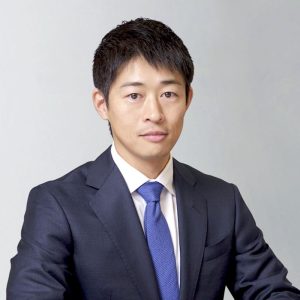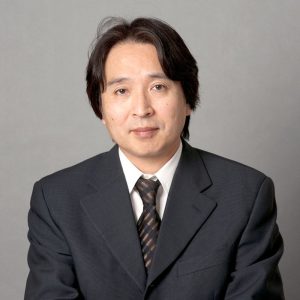With the dramatic progress of financial technology, derivative transactions have now become one of the basic tools for business which are indispensable at business corporations and financial institutions from the perspective of corporate risk hedging and financial risk management. For example, when companies plan to obtain funds, transactions such as interest rate futures or interest swaps are usually used in order to hedge the interest rate risk. In international transactions in which a foreign currency is used for the clearing or settlement, transactions such as currency swaps and foreign exchange forward transactions are usually used in order to hedge the currency exchange risk. Also, derivative transactions are usually incorporated or embedded in hybrid financial instruments and structured bonds arranged and sold by financial institutions and in various types of structured finance transactions, and thus, it is difficult to imagine any hybrid financial instruments, structured bonds and structured finance transactions which are not connected to any derivative transaction. Today, even corporate credit and weather risks are traded as underlying assets in derivative transactions.
City-Yuwa Partners has lawyers who have been dealing with legal issues and drafting contracts relating to derivative transactions, which require a high level of expertise, since the days before derivative transactions became popular among Japanese lawyers and, by doing so, have been providing legal services to clients on such derivative transactions for many years. City-Yuwa also has lawyers who have experience working in a department developing new financial instruments and/or a derivative team in one or more financial institutions as an in-house counsel, and/or who have actively participated in ISDA (the International Swaps and Derivatives Association) activities. Furthermore, City-Yuwa has lawyers who have extensive knowledge regarding laws, regulations and customary practices overseas in relation to derivative transactions through advising domestic financial institutions on various derivative transactions with a lot of foreign counterparties. Those lawyers have been directly involved in the development and expansion of legal practices relating to derivative transactions in the Tokyo market. City-Yuwa is capable of swiftly and accurately meeting the diverse needs of clients in derivative transactions through the extensive experience, knowledge of laws, regulations and customary practices in Japan and overseas, and know-how in various kinds of documentation, which those lawyers accumulated over the years.
Derivative transactions are usually divided into two types: market derivatives which are traded in exchanges (e.g., the Osaka Exchange, where bond futures, TOPIX futures and Tokyo Stock Exchange REIT Index options are traded), and OTC (over-the-counter) derivatives which are directly traded by and between the parties rather than through exchanges. As a matter of fact, lawyers have limited opportunity to use their expertise when dealing with market derivatives unless there is a legal dispute arising from such a transaction, due to the fact that market derivatives are traded through exchanges, each of which has established its own rules and regulations. On the other hand, when dealing with OTC derivatives, because each transaction involving OTC derivatives is a contract between the parties, the terms and conditions of the contract are vital, and thus, the level of understanding by lawyers and in-house legal personnel in charge of the details of each transaction and their expertise in derivative documentation will be tested. As for the derivative documentation, an understanding of standard contracts published by ISDA (i.e., the ISDA Master Agreement; and Credit Support Annex (CSA), which is a standard collateral contract tailored to OTC derivatives), definition books for each type of transaction and other ISDA-related documents (collectively, the “ISDA Documents”) is indispensable.
Lawyers specializing in derivative transactions at City-Yuwa have a comprehensive understanding of the ISDA Documents and have further deepened their legal analysis skills, understanding of customary practices and documentation skills through their past in-depth consultations with and requests from clients and, therefore, they are capable of providing timely service which meets the needs of clients. For example, they are not only able to customize some of the ISDA Documents as necessary depending on the type of client (e.g., local government entity, trust account, business firm or SPC) and various needs of clients, and to provide legal advice relating to negotiation and execution of the ISDA Documents, but also to provide other documentation to use for derivative transactions (including, but not limited to, another master agreement in Japanese) and other documents. Furthermore, with respect to structured finance transactions incorporating derivatives, such as synthetic CDOs, credit linked notes (CLN), covered warrants and repackaged bonds, City-Yuwa lawyers are able to provide various services which meet clients’ needs, including giving advice from the structuring phase, preparing and creating documentation including related contracts and other documents, and providing advice on sales solicitations, etc.

 Hirakawa, JunkoPartner
Hirakawa, JunkoPartner Katayama, NoriyukiPartner Nijubashi Office
Katayama, NoriyukiPartner Nijubashi Office Kuribayashi, YasuyukiPartner Nijubashi Office
Kuribayashi, YasuyukiPartner Nijubashi Office Sakamoto, MasamichiPartner
Sakamoto, MasamichiPartner Yoshida, ReikoPartner
Yoshida, ReikoPartner Saito, TakashiPartner Nijubashi Office
Saito, TakashiPartner Nijubashi Office Yasukawa, AkiraPartner Nijubashi Office
Yasukawa, AkiraPartner Nijubashi Office Goto, IzuruOf Counsel Nijubashi Office
Goto, IzuruOf Counsel Nijubashi Office